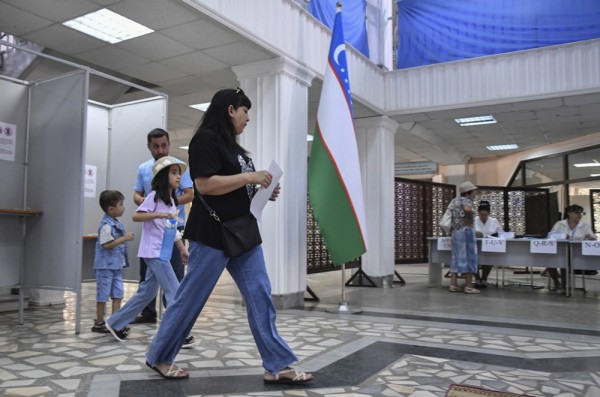According to information before the International Press Institute (IPI) the global network of editors, leading journalists and media executives in over 120 countries, the Uzbek government is using a new accreditation law to apply pressure on Uzbek journalists working for foreign media.
Natalia Bushuyeva, an Uzbek citizen working for the German broadcaster Deutsche Welle (DW), was summoned to the Prosecutor General’s office in the capital Tashkent on 23 March and accused of operating without a journalism license and evading tax. On the following day the Prosecutor’s Office started criminal proceedings against Bushuyeva, under Articles 184 part 2 section ‘b’ and Article 190 part 2 section ‘b’ of the Uzbek Penal code. She faces up to three years in prison if charged. The prosecutor’s office reportedly plans to bring similar charges against other Uzbek journalists working for Deutsche Welle as freelancers.
Bushuyeva is the first journalist to be charged with working without a license since Uzbekistan adopted a law which bans local journalists from working for foreign media without accreditation from the government. Bushuyeva’s accreditation expired in 2005. The pro-government website www.gorizont.uz said that Bushuyeva, in addition to working without accreditation, had allegedly worked for Deutsche Welle radio for five years without declaring her income.
In early 2006, the Uzbek government passed a resolution regulating the activities of foreign journalists working in Uzbekistan. All international journalists must be accredited with the Ministry of Foreign Affairs, which authorises foreign media to open bureaus in the country. The rights and obligations of foreign journalists may also be regulated on the basis of bilateral agreements.
According to the resolution, the foreign ministry can issue warnings, cancel accreditation, annul visas, and expel foreign journalists from the country if they breach the regulations.
In January 2006, the Ministry of Justice announced that Freedom House, the non-profit organisation that supports the expansion of freedom in the world, would have its operations in Uzbekistan suspended for violating Uzbek registration and licensing law. The organisation was accused, among other things, of allowing local human rights organizations to use its Internet facilities. Radio Free Europe/Radio Liberty (RFE/RL) closed its Tashkent office in December 2005, after the Foreign Ministry refused to renew its accreditation.
According to reports, pressure on international organizations, which work in Uzbekistan promoting democracy, free speech and free media, has increased since the May 2005 unrest in Andijan, in eastern Uzbekistan. Uzbek authorities accuse foreign aid and human rights groups of causing unrest.
Commenting on the situation, IPI Director Johann P. Fritz said, “We are very concerned about the worsening media freedom situation in Uzbekistan. These events are a disturbing sign that the authorities are trying to stifle independent reporting. This is not the first time a journalist has been harassed in Uzbekistan, and IPI calls on the Uzbek government to review the new law and to allow journalists to practice their profession without hindrance.”
“When events of such magnitude as Andijan in May 2005 take place the media must be allowed to carry out their professional duties – to seek, receive and impart information and ideas through any media and regardless of frontiers – as stated in Article 19 of the Universal Declaration of Human Rights,” Fritz added.

